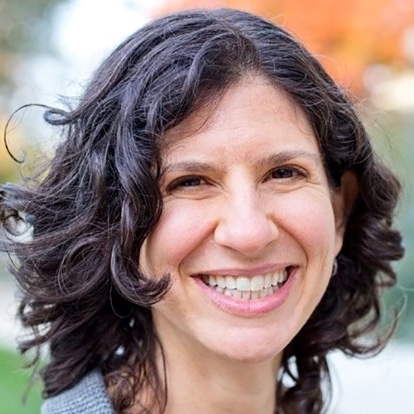
SA

France’s ‘love-hate’ relationship with Jews not a new phenomenon
MOIRA SCHNEIDER
Leff was delivering an address titled, “France and the Jews: the history of a love/hate relationship”, under the auspices of the University of Cape Town’s Kaplan Centre and the South African Jewish Museum. She is Professor of History and Acting Dean of the College of Arts and Sciences at American University.
Leff described the 2012 incident at a Jewish school in Toulouse in which four Jews were shot and killed by a terrorist as the “breaking point” in that it was “the first time we saw terrorism against Jews”. In 2015, four Jewish customers doing their Shabbos shopping at the Hyper Cacher grocery store were similarly mowed down.
In 2017, Sarah Halimi, 65, was murdered in what was classified by a French court as an anti-Semitic attack; in March 2018, 85-year-old Holocaust survivor Mireille Knoll was murdered in her Paris apartment by her Muslim neighbour.
“We regard these incidents as being Middle East politics being brought to France,” Leff said, “but there is an additional French dimension” to what she described as the “hate part” of the relationship.
As for the “love part”, France was once seen as a nation of anti-Nazi resistance. “Jews had a positive view of France – resistance was celebrated as the true France.”
Because of that, 75% of French Jews survived Nazi occupation, a phenomenon she labelled “quite remarkable”.
“Jews were part of that, but it would not have been possible without Righteous Gentiles,” she maintains.
In the 1920s and 1930s, Jews saw France as a haven. It was the one place that welcomed Jews, resulting in the doubling of the Jewish population in the 1930s.
“In the 19th century, it was the enduring wisdom among European Jews that this was the best country on earth to live in. Since the French Revolution, France was seen as a champion of Jewish rights, having granted full citizenship to its Jews.”
On the other hand, France was also the home of hateful anti-Semitism. “How do we account for this contradiction?” she asked.
Constituting a miniscule proportion of the population as they have done since 1789 – .1% to .8% today – why do the French care so much, whether it is manifested as love or hate, Leff ponders.
Jews have been symbolically important in French culture. “Jews have been incredibly visibly successful in French politics,” she said, mentioning two Jewish Prime Ministers of the 20th century – Leon Blum in the 1930s; and Pierre Mendes France in the 1950s. Jews also occupied high positions in the 19th century.
“It is quite remarkable for a smaller population to achieve this,” Leff said. “There were two major actresses of the 19th century, Rachel Felix and Sarah Bernhardt, on the French stage – much was made of their Jewishness.”
Jews were potent political symbols in the French Enlightenment (1715-1789). Much was written about them, including a high level of ambivalence towards them.
Jews were also potent symbols in foreign policy and colonial policy, she said. In the French colony of Algeria, Jews had achieved full French citizenship, while Muslims had not.
It was this discrepancy in treatment that led to the emergence of anti-Semitism in the colony in the late 19th century – white immigrants from Europe had been upset at not gaining French citizenship. This led to the formation of the anti-Juifs (Jews) movement.
“They see it as a Jewish conspiracy that has captured the Republic, making it a tool for Jewish exploitation.”
In the 1890s, the Dreyfus Affair resulted in the return of anti-Semitism to France. Dreyfus, a high-ranking army officer, was falsely accused of selling state secrets to the Germans.
“The French were bitterly divided over the Dreyfus Affair. Anti-Semitism grew stronger and stronger, even as Jews were reaching their highest level of success. There were two Frances – one Republican and pro-Jewish; the other quite the opposite.”
After the Nazi occupation in 1940, indigenous anti-Semites “walked into positions of influence”. “Twenty-five per cent of Jews were deported with the collaboration of their countrymen, many of whom were deeply committed anti-Semites,” Leff said.
“Jews are the symbol that defines what France is, and are playing that role in a highly contentious environment,” she said.
As for the French state’s response to the anti-Semitism of the past 15 years, following the 2003 bombing of an unoccupied Jewish school, President Jacques Chirac said: “Attacking a Jew in France is an attack on all of France.”
After the 2015 Cacher Supermarket bombing when Israeli Prime Minister Binyamin Netanyahu called for Jews to leave the country for Israel, Prime Minister Manuel Valls said: “If 100 000 Jews leave, France will no longer be France. The French Republic will be judged a failure.”
“So, it’s not just about immigrants, it’s about Jews,” Leff said, mentioning that other groups did not enjoy this attention, and referring to a 2018 march against anti-Semitism, which included French political leaders.




